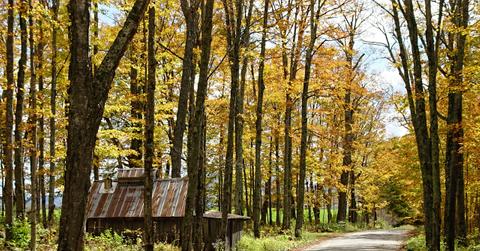New Jersey May Turn Their Wetlands Into A 'Climate Change' National Park
As sea levels rise, coastal areas are trying to figure out how to save their communities. One organization is suggesting we let the water in.
Updated May 24 2019, 8:45 a.m. ET
The New Jersey Meadowlands is composed of low-lying wetlands. Unfortunately, the wetlands end up being the ground which is most vulnerable to sea water that rises due to climate change. But a New York-area research and planning nonprofit called the Regional Planning Association (RPA) suggests that they could turn this weakness into an asset.
Fast Company reports that the RPA would like to turn the area into the nation's first "Climate Change National Park."
Rob Freudenberg, the VP for energy and environment at RPA, says that wetlands are actually perfectly designed to help with erosion and water levels created by the rising tides.
“The park would embrace the fact that water is coming,” he explained. "And show that if we let it in, we can essentially do a service for the region by absorbing some of the sea level rise.”
At the moment, Meadowlands National Park is inhabited by some residential communities, but it also contains a number of warehousing and distribution facilities. It's crossed by both rail lines and the New Jersey Turnpike. RPA's suggestions would turn the area into much more of a wilderness that can absorb water.
However, it's predicted that as sea levels rise, most of these residents will be chased form meadowlands anyway, whether or not they attempt to do something drastic now. So why not be drastic?
“We want to see this as a place where you could take a train to, and get out and go on a kayak ride or a hike on the Tristate Trail,” Freudenberg said. “Right now, it’s the kind of place where you pass through. We want it to be a destination.”
It's a potentially scary compromise that risks what people are comfortable with now, with what could be possible in future. But RPA points out that other measures may not satisfy either—many living in the lowest points will have to be evacuated anyway, and attempts to build sea walls will only divert water to other areas, potentially damaging them.
“The idea of retreat is not one that sits well with the American public,” said Freudenberg. “But if you look at the region and the amount of adaptation that’s going to need to take place, you’ll see that there are going to be places we have to choose to protect, and others that we can’t.”
A grim prognostication, but one with a potentially exhilarating possibilities, if the state decides to take a risk and name a national park what it is—nature protecting us.
